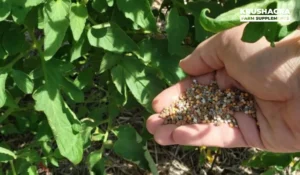Introduction
In the realm of agriculture and forestry, pest management is a crucial aspect of maintaining healthy and productive plantations. Among the numerous pests that affect these ecosystems, mites pose a significant threat. Traditional chemical pesticides have long been utilized for mite control, but they often come with undesirable consequences for the environment and human health. Fortunately, the emergence of biopesticides offers a promising alternative. In this blog, we will explore the advantages of using biopesticides to control mites in forestry and avenue plantations.
Environmental Safety
One of the most significant advantages of biopesticides is their environmentally friendly nature. Unlike conventional pesticides, biopesticides are derived from naturally occurring substances, such as plants, bacteria, or fungi. They are biodegradable and pose minimal risk to non-target organisms, including birds, mammals, and beneficial insects. By choosing biopesticides, we can effectively control mites without causing harm to the delicate balance of the ecosystem.
Target Specificity
Biopesticides are highly effective at controlling mites due to their target specificity. They have been designed to target specific pests while leaving beneficial organisms unharmed. This targeted approach ensures that mites are controlled effectively while minimizing the impact on other beneficial insects, such as pollinators and natural predators of mites. As a result, the ecological balance within the plantation is maintained, allowing for sustainable and natural pest control.
Reduced Resistance Development
Mites, like many other pests, have demonstrated an alarming ability to develop resistance to chemical pesticides over time. This has led to the need for stronger, more toxic chemicals, which perpetuates a harmful cycle. However, biopesticides work through multiple modes of action, making it difficult for mites to develop resistance. By incorporating biopesticides into mite control programs, we can reduce the risk of resistance development and preserve their effectiveness in the long run.
Worker and Consumer Safety
Chemical pesticides used in conventional mite control often pose risks to workers who handle them and consumers who consume the crops. These pesticides can leave residues on harvested produce, potentially leading to health issues. In contrast, biopesticides are generally considered safer for workers and consumers. They have shorter pre-harvest intervals and pose fewer risks to human health, making them a preferable choice for sustainable agricultural practices.
Organic Certification
With the growing demand for organic products, the use of biopesticides provides a significant advantage for farmers and foresters seeking organic certification. Many biopesticides are approved for use in organic agriculture and meet the strict standards set by organic certification bodies. By utilizing biopesticides, forestry and avenue plantation managers can meet the requirements for organic certification and tap into a premium market for organic produce.
Conclusion
The advantages of using biopesticides to control mites in forestry and avenue plantations are undeniable. Their environmental safety, target specificity, reduced resistance development, worker and consumer safety, and compatibility with organic certification make them a superior choice over conventional chemical pesticides. By adopting biopesticides as part of integrated pest management strategies, we can achieve sustainable and environmentally responsible mite control, ensuring the health and productivity of our plantations for generations to come.





